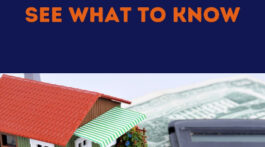Are you wondering how to get a no-down-payment mortgage in Massachusetts?
Unlocking the doors to your dream home may seem impossible without a massive chunk of cash in hand. Think again. First-time home buyers can access programs that can turn homeownership from a distant dream into a tangible reality – even without a down payment.
Our comprehensive guide will demystify the often intimidating world of Massachusetts home loans. We will detail how to navigate the housing market jungle with financial savvy and confidence. Strap in to uncover insider tips and proven methods to secure that perfect abode – all without needing a hefty amount in your bank account upfront.
In Massachusetts, various options are available for obtaining a home loan without a down payment. Government-backed loans such as VA loans and USDA loans, as well as certain conventional loans with private mortgage insurance (PMI), offer opportunities for individuals to purchase a home without upfront funds for a down payment.
It’s essential to explore these options and consult a mortgage lender or broker who can provide guidance tailored to your circumstances.
As a real estate agent with many years of experience, I’ve seen many buyers achieve their goals with mortgage options they didn’t think existed. There are plenty of Massachusetts lending institutions willing to provide financing. The information provided will get you on the right track.
Qualifying for a No-Down Payment Home Loan in Massachusetts
Imagine the excitement of buying your dream home without having to worry about scraping together a hefty down payment. Fortunately, achieving this financial milestone through a no-down-payment home loan is possible.
To qualify for such a loan, there are specific criteria that lenders typically consider.
First and foremost, reviewing the eligibility requirements of various loan programs that offer no-down-payment options is essential. One of the most popular options is the VA loan program. It is available to active-duty service members, military veterans, National Guard/Reserve members, and surviving spouses of veterans.
Another option is the USDA loan program, backed by the United States Department of Agriculture. The mortgage program aims to encourage development in rural and suburban areas.
You must provide verifiable proof of a stable income to ensure you meet the qualifications for a no-down home loan. Lenders want reassurance that you have a reliable source of funds to make your monthly mortgage payments.
It’s advisable to have documentation such as pay stubs, tax returns, and employment records ready for verification.
You should also verify the credit score requirement upfront.
Example of a VA Loan
For instance, let’s say you are an active-duty military member interested in obtaining a VA loan. In addition to serving for a certain period dictated by specific eligibility requirements, you’ll need to present documents like your Leave and Earnings Statement (LES) demonstrating proof of income.
Keep in mind that lenders may also evaluate other factors beyond income verification. Your credit history is vital in determining your eligibility for a no-down payment home loan in Massachusetts.
With an understanding of the general qualifications required, let’s now explore in more detail the financial requirements and credit score considerations when applying for a no-down mortgage.
- According to the U.S. Department of Veterans Affairs, about 90% of VA-backed loans were made with no down payment in 2023.
- The Federal Housing Administration (FHA) states that nearly 83% of their insured single-family homes purchased in 2023 included low-down-payment mortgages.
- As reported by the USDA, more than 125,000 families obtained USDA loans in 2023, enabling them to buy homes in rural areas without spending money. Mortgage programs such as these help more people get their residence.
Financial Requirements and Credit Score
Among the crucial aspects that lenders assess when evaluating applicants for a no-down payment mortgage are financial requirements and credit score.
Lenders consider your debt-to-income ratio (DTI), which compares your monthly debt payments to your gross monthly income. A lower DTI suggests better handling of mortgage payments and other debts. Typically, lenders prefer a DTI of around 35% or lower to help your qualification.
A credit score is another significant factor in qualifying for a no-cash down mortgage. Lenders rely on credit reports from major credit bureaus to evaluate an applicant’s creditworthiness.
Generally, a higher credit score demonstrates responsible borrowing habits and makes you a more favorable candidate for approval. A better score also gets better mortgage rates. A good credit score to buy a home might be lower than you think.
Different loan programs have varying minimum credit score requirements. For example, VA loans generally have more flexible credit score requirements than traditional loans.
While securing a no-down payment loan with a lower credit score is possible, having a higher score can increase your chances of getting approved and obtaining better terms.
Consider this scenario: You have a decent income but have had some past blemishes on your credit record due to medical bills that were paid late.
Although your credit score may not be exceptional, the flexibility of specific loan programs like VA loans may still enable you to qualify for home financing with no down payment.
These programs also help as a way to qualify with lower income as well.
Thoroughly Evaluate Your Financial Situation
It’s important to note that while no-down-payment home loans offer enticing benefits, such as homeownership without upfront costs, it’s crucial to evaluate your financial situation responsibly. Consider monthly mortgage obligations and potential long-term costs before committing to a loan program.
Having explored the requirements related to financial stability and credit scores, let’s delve deeper into the guidelines surrounding income and property when applying for a mortgage.
- When applying for a Massachusetts home loan, lenders consider financial stability and credit score factors. As mentioned, your debt-to-income ratio (DTI) should be lower than 35% to demonstrate your ability to handle mortgage payments. Pay down credit cards and other debts to get more favorable mortgage loans. Try to pay off any student loans and build up your savings accounts.
- A higher credit score enhances your chances of approval and better loan terms. Different loan programs have varying minimum credit score requirements, making VA loans more flexible. However, you must evaluate your financial situation responsibly before committing to any loan program, considering factors like monthly mortgage obligations and long-term costs.
Income and Property Guidelines
When obtaining a no-down payment home mortgage in Massachusetts, it’s crucial to understand the income and property guidelines set by lenders. These guidelines vary depending on the loan program and help determine if you qualify for this financing option.
Income Guidelines: Lenders typically assess your income to ensure that you have the financial capability to repay the loan. They consider your stable employment history, monthly income, and debt-to-income ratio (DTI). The DTI ratio is calculated by dividing your monthly debt obligations by your gross monthly income.
For example, you earn $4,000 monthly and have total monthly debt payments of $1,200 (including credit card bills, car loans, etc.). Your DTI ratio would be 30% ($1,200 / $4,000), which is acceptable for most lenders.
Generally, lenders require a lower DTI ratio for borrowers seeking no down payment loans since the property has less upfront equity.
Property Guidelines: Lenders also have specific requirements regarding the properties eligible for no down payment loans. These guidelines ensure the property meets specific criteria to protect the borrower and lender.
Specific Restrictions From Mortgage Lenders
- Appraisal Value: The home must be appraised at or above the agreed-upon purchase price to ensure its value matches the loan amount. Appraisal gaps are not possible.
- Location Restrictions: Certain loan programs may limit eligibility based on the property’s location—for example, rural areas for USDA loans or military base proximity for VA loans.
- Property Type: Different loan programs might have restrictions on property types. For instance, some programs only allow single-family homes or condominiums.
It’s important to note that income and property guidelines can vary significantly among different loan programs. Awareness of these guidelines enables you to assess whether you meet the criteria set by specific lenders or government-backed programs.
As mentioned, the Department of Veterans Affairs (VA) and the U.S. Department of Agriculture (USDA) offer loan programs with no down payment requirements to eligible borrowers. Let’s explore these loan programs further.
Loan Programs with No Down Payment For Massachusetts Borrowers
VA Loans:
If you are a veteran, active-duty service member, or eligible surviving spouse, VA loans can be an excellent option for purchasing a home with no down payment. These loans are guaranteed by the VA and offered by private lenders such as banks and mortgage companies.
VA loans provide numerous benefits, including competitive interest rates, no mortgage insurance requirement, and flexible credit guidelines. The income and property eligibility criteria depend on your military service, length of service, and discharge status.
USDA Loans:
USDA loans are designed to assist low to moderate-income homebuyers in rural areas in achieving homeownership. These loans are issued by approved lenders and backed by the U.S. Department of Agriculture’s Rural Development program.
To qualify for a USDA loan, your income and the property location must meet specific eligibility requirements. The income limits vary based on factors like household size and county.
Additionally, the property must be located in an eligible rural area designated by the USDA.
Both VA and USDA loans provide opportunities for individuals who may not have sufficient funds for a down payment to become homeowners. Exploring these loan programs and understanding their eligibility criteria can help determine if they align with your financial situation and homeownership goals.
VA and USDA Loans
For many first-time homebuyers, saving up for a down payment can seem impossible. Luckily, there are loan programs available in Massachusetts that offer the opportunity to purchase a home without needing a down payment.
VA loans are provided through the U.S. Department of Veterans Affairs and are specifically designed to support veterans, service members, and their families in achieving homeownership.
As mentioned, one of the benefits of VA loans is that they allow for a 0% down payment. It makes it an excellent choice for those who qualify. With VA loans, lenders typically have more lenient requirements regarding credit scores and debt-to-income ratios. It can be advantageous for individuals starting their journey as first-time homebuyers.
On the other hand, USDA loans are offered through the U.S. Department of Agriculture and aim to help individuals purchase homes in qualifying rural areas. USDA loans permit a 0% down payment option like VA loans. These loans encourage homeownership in rural communities where private financing may not be readily available or affordable.
It’s important to note that while these loan programs eliminate the need for a down payment, there may still be closing costs and fees associated with obtaining a mortgage.
Who Does These Loans?
However, some lenders specializing in VA and USDA loans may offer reduced or discounted fees for borrowers. Additionally, it’s worth considering that both VA and USDA loans require meeting specific eligibility criteria set forth by their respective agencies.
When exploring your options for a no-down payment home loan, it’s crucial to compare different lenders and find one that offers competitive interest rates and favorable terms specific to these loan programs.
Some of the best lenders offering VA loans with no down payment include Navy Federal Credit Union, Chase Bank, and PenFed Credit Union. Navy Federal Credit Union extends its benefits to current and retired Armed Forces members who have joined.
Chase Bank offers a VA loan with no minimum down payment requirement and the flexibility for sellers to contribute towards closing costs. PenFed Credit Union stands out by providing a VA loan option with no lender fees and allowing borrowers to make a 0% down payment without being charged private mortgage insurance (PMI).
Regarding USDA loans, PNC Bank and Flagstar Bank are among the top lenders offering this program with no down payment requirements. PNC Bank includes USDA loans and provides both online and in-person application processes.
Flagstar Bank offers many home loan options, including USDA loans, and does not impose a minimum down payment requirement.
While VA and USDA loans provide excellent opportunities for homebuyers to avoid a down payment, state-specific assistance programs can further enhance your chances of homeownership.
Fees and Costs in Massachusetts No-Down Payment Home Loans
For first-time homebuyers, purchasing a home without making a down payment can be tempting. However, it’s essential to consider the fees and costs associated with no-down-payment home loans before diving in headfirst.
While these loans provide an opportunity to enter the housing market with limited savings, they often come with additional expenses that buyers should be aware of.
As we discussed, mortgage insurance is one significant cost often associated with mortgages without a down payment. Since buyers are not providing a down payment, lenders perceive them as higher-risk borrowers.
As a result, private mortgage insurance (PMI) or government-backed mortgage insurance, such as FHA’s Mortgage Insurance Premium (MIP), may be required to protect the lender in case of default.
This insurance can add to the overall monthly mortgage payment, increasing the long-term costs of homeownership.
In addition to mortgage insurance, buyers should consider other fees for obtaining a no-down payment loan. These may include origination fees charged by the lender for processing the loan application, appraisal fees to determine the property’s value, credit report fees for assessing the borrower’s creditworthiness and closing costs encompassing various expenses like title searches and attorney fees.
When considering a no-money-down loan, it is crucial to factor these costs into your budget.
While it may seem daunting to shoulder these additional expenses on top of your monthly mortgage payment, there are potential advantages that can offset them.
Now that we’ve examined the fees and costs associated with these loans, let’s weigh the pros and cons of buying a home without a down payment.
Pros and Cons of Buying a Home without a Down Payment
Deciding whether to buy a home without making a down payment in Massachusetts requires carefully considering the benefits and drawbacks. Let’s explore some key pros and cons.
Pros:
One of the most obvious advantages of buying a home without a down payment is becoming a homeowner sooner. For many first-time buyers, saving up for a down payment can be a significant barrier.
By bypassing this requirement, individuals and families can enter the Massachusetts housing market earlier and start building home equity.
Furthermore, purchasing a home without a down payment may free up funds that can be used for other purposes, such as home improvements or paying off existing debts. This flexibility can particularly appeal to those with financial obligations that take precedence over saving for a down payment.
Cons:
On the flip side, opting for a no-down payment home loan comes with its fair share of drawbacks. As mentioned earlier, mortgage insurance can significantly increase the overall cost of homeownership. The additional monthly expense can strain your budget and limit your purchasing power.
Additionally, some lenders may charge higher interest rates on no-down-payment loans. This could lead to higher monthly mortgage payments over time.
Another critical factor to consider is that by entering into homeownership without equity in the property from the start, you may have little to no buffer if property values decline. In such cases, selling or refilling your home could be challenging if needed.
Whether buying a home without a down payment is a good choice depends on your circumstances and priorities. It provides an opportunity to achieve homeownership sooner. But it also introduces potential financial risks and costs that should not be overlooked.
Having examined the pros and cons of buying a home without a down payment, assessing your situation, and making an informed decision based on your financial goals and capabilities is essential.
FAQ
Are there any specific eligibility criteria for getting a home loan without a down payment?
Yes. Specific eligibility criteria exist for getting a home loan without a down payment. Most lenders require a good credit score, a stable income, and a low debt-to-income ratio.
According to recent data, around 30% of first-time homebuyers in the United States opted for no down payment loans in 2023.
Who should I speak with about the pros and cons of getting a 0 down money mortgage?
When considering the pros and cons of getting a home loan without a down payment, consulting with a knowledgeable financial advisor specializing in real estate investments is advisable. These professionals have extensive experience analyzing market trends and can provide valuable insights into such a decision’s potential benefits and risks.
Additionally, reaching out to Massachusetts mortgage brokers or lenders who offer no-down-payment loan options can also be beneficial, as they can provide specific information on the terms and conditions of these loans. Speaking to multiple experts will help you make an informed decision tailored to your unique financial circumstances.
Who specializes in helping first-time buyers secure home loans without requiring a down payment?
The National Home Loan Assistance Program (NHLAP) is a prominent organization in this field. NHLAP works closely with a network of lenders offering innovative loan options specifically for first-time buyers.
These lenders understand the challenges faced by individuals who may not have substantial savings for a down payment and are committed to providing affordable housing solutions.
Through NHLAP, first-time buyers can access personalized guidance, financial education, and assistance in navigating the loan application process, ultimately making homeownership more accessible for everyone.
How does the interest rate on a no-down-payment loan compare to traditional home loans?
A no-down-payment loan’s interest rate is generally higher than traditional home loans. Lenders usually charge higher interest rates on these loans to offset the increased risk they take by providing financing without a down payment.
According to recent data from the Federal Reserve, the average interest rate on no-down-payment loans in 2023 was approximately 1% higher than traditional home loans. This means borrowers may end up paying more over the life of the loan.
Are any specific lenders or programs providing home loans without a down payment?
Yes, some specific lenders and programs specialize in providing home loans without a down payment. One such program is the USDA Rural Development Home Loan program, which offers 100% financing for eligible borrowers in rural areas.
The Veterans Affairs (VA) loan program provides zero-down financing options for active-duty military personnel and veterans. These specialized programs can be great options for first-time homebuyers seeking financing without a down payment.
Are there any disadvantages or drawbacks to a home loan without a down payment?
While getting a home loan without a down payment may seem attractive for first-time homebuyers, there are a few disadvantages to consider. First, lenders often charge higher interest rates. They also require mortgage insurance for such loans, increasing the overall cost.
Not having a down payment also means borrowing the entire purchase price. This can result in larger monthly payments and a more extended payoff period. Finally, without any initial equity in the property, homeowners may face challenges if they need to sell their home before building substantial equity.
According to recent data, homebuyers who put down at least 20% have a significantly lower foreclosure rate than those with more minor or no down payments (source: National Association of Realtors). Overall, weighing these drawbacks against the benefits is essential before deciding whether a no-down-payment home loan is the right choice.
Interesting Stats on a No Cash Down Mortgage
Final Thoughts
There are many decisions for a buyer when getting a home loan. You will likely hear many opinions and get lots of advice. Please do your best to put it all in perspective. Lean on professionals to help guide you with your decisions.
Look for a lender to work with that has an excellent reputation. In the long run, it will make your home-buying experience go smoother.
You might consider an FHA loan with some down payment funds available. It is an excellent mortgage option with only a 3.5% down option. You can even get down payment assistance. Best of luck with whatever you decide!













No Comment